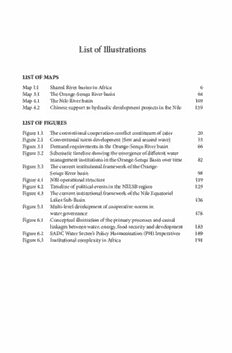
The Politics of Water in Africa: Norms, Environmental Regions and Transboundary Cooperation in the Orange-Senqu and Nile Rivers PDF
259 Pages·2012·5.294 MB·English
Most books are stored in the elastic cloud where traffic is expensive. For this reason, we have a limit on daily download.
Preview The Politics of Water in Africa: Norms, Environmental Regions and Transboundary Cooperation in the Orange-Senqu and Nile Rivers
Description:
Water resources and related issues are of great significance in 21st century politics. In Africa, for example, hydropolitics affect politics and policymaking at the local, national, and international levels. To investigate water politics, this unique work focuses on the issue transboundary water governance in Southern and Eastern Africa.Based on extensive field research, it offers a comparative study of the Orange Senqu and Nile basins in Africa, arguing that both causal and behavioral factors (such as localization and trust building) drive the multi-leveled development of cooperative management norms and foster the creation of regional communities of interest.The book combines theory, analysis, and fieldwork within the framework of Constructivism as well as a wide range of examples to identify and analyze the nature of norms in hydropolitics. By doing so, it will help shape the debate on how water conflict and cooperative governance should evolve and will interest anyone studying African politics, hydropolitics, and issues of development.
See more
The list of books you might like
Most books are stored in the elastic cloud where traffic is expensive. For this reason, we have a limit on daily download.
